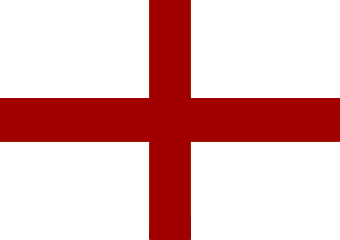| Revision as of 16:04, 4 March 2003 editQfwfq (talk | contribs)494 editsm typo← Previous edit | Revision as of 21:25, 28 March 2003 edit undoHephaestos (talk | contribs)22,414 editsmNo edit summaryNext edit → | ||
| Line 5: | Line 5: | ||
| <table align = right cellpadding = 0 cellspacing = 0 border = 1><tr><td>]</table> | <table align = right cellpadding = 0 cellspacing = 0 border = 1><tr><td>]</table> | ||
| '''Genoa''' (] ''Genova'' (jen'o-vah), ] ''Zena'' (zay'nah)) is a ] and a ] in northern ], the capital of ]. It has a population of ca. 700,000. | '''Genoa''' (] ''Genova'' (jen'o-vah), ] ''Zena'' (zay'nah)) is a ] and a ] in northern ], the capital of ]. It has a population of ca. 700,000. | ||
| ''Genua'' was a city of the ]. Faithful to Rome while other Ligurian and ] of modern N Italy stood by ] in the ], Genoa lost its importance as a port city after the rise of ''Vada Sabatia'', near ]. | |||
| During the ], Genoa was an independent and powerful republic (one of the so-called ''Repubbliche Marinare'', the others being ], ], and ]) mainly oriented on the sea. The ] extended over modern ] and S ]. It had several colonies in the ], in the ], in ], ] and Northern ]. It possessed the island of ]. |
During the ], Genoa was an independent and powerful republic (one of the so-called ''Repubbliche Marinare'', the others being ], ], and ]) mainly oriented on the sea. The ] extended over modern ] and S ]. It had several colonies in the ], in the ], in ], ] and Northern ]. It possessed the island of ]. | ||
| Famous Genoese families such as the ]s had practically complete control of the ]. | |||
| The Republic became part of the ] until ], when the delegates at the ] sanctioned its incorporation into ] (].) | The Republic became part of the ] until ], when the delegates at the ] sanctioned its incorporation into ] (].) | ||
| Line 17: | Line 19: | ||
| In July of ], in opposition to the ] Economic International Summit, the ] brought half a million protesters from all around Europe to Genoa. | In July of ], in opposition to the ] Economic International Summit, the ] brought half a million protesters from all around Europe to Genoa. | ||
| The port of Genoa is the first in ]. It ranks second in the ] after ], ]. |
*The port of Genoa is the first in ]. It ranks second in the ] after ], ]. | ||
| The ] of Genoa is the largest in ]. |
*The ] of Genoa is the largest in ]. | ||
| Other landmarks of the city are the ] (Doge's Palace), St. Lawrence Cathedral ( |
*Other landmarks of the city are the ] (Doge's Palace), St. Lawrence Cathedral (''Cattedrale di San Lorenzo''), The Old Harbor (''Porto Antico''), transformed into a mall by architect ], Via Garibaldi with its superb palaces. | ||
| ] | <center>]</center> | ||
| ''The Genoa Stock Exchange'' (GC) | ''The Genoa Stock Exchange'' (GC) | ||
Revision as of 21:25, 28 March 2003
This article is about the Italian city. For other uses see Genoa (disambiguation).
 |
Genoa (Italian Genova (jen'o-vah), Genoese Zena (zay'nah)) is a city and a seaport in northern Italy, the capital of Liguria. It has a population of ca. 700,000.
Genua was a city of the Ligures. Faithful to Rome while other Ligurian and Celtic peoples of modern N Italy stood by Carthaginians in the Second Punic War, Genoa lost its importance as a port city after the rise of Vada Sabatia, near Savona.
During the Middle Ages, Genoa was an independent and powerful republic (one of the so-called Repubbliche Marinare, the others being Venice, Pisa, and Amalfi) mainly oriented on the sea. The Republic of Genoa extended over modern Liguria and S Piedmont. It had several colonies in the Mideast, in the Black Sea, in Sicily, Sardinia and Northern Africa. It possessed the island of Corsica.
Famous Genoese families such as the Dorias had practically complete control of the Tyrrhenian Sea.
The Republic became part of the French Empire until 1815, when the delegates at the Congress of Vienna sanctioned its incorporation into Piedmont (Kingdom of Sardinia.)
Famous Genoese are Christopher Columbus, admiral Andrea Doria, violinist Nicolò Paganini and Italian patriot Giuseppe Mazzini.
In July of 2001, in opposition to the G8 Economic International Summit, the Genoa Social Forum brought half a million protesters from all around Europe to Genoa.
- The port of Genoa is the first in Italy. It ranks second in the Mediterranean after Marseille, France.
- The Aquarium of Genoa is the largest in Europe.
- Other landmarks of the city are the Palazzo Ducale (Doge's Palace), St. Lawrence Cathedral (Cattedrale di San Lorenzo), The Old Harbor (Porto Antico), transformed into a mall by architect Renzo Piano, Via Garibaldi with its superb palaces.

The Genoa Stock Exchange (GC)